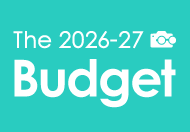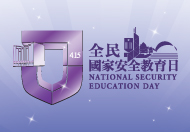Frequently Asked Questions
Entertainment Licensing
- the person applying for the licence is an individual person who has attained the age of 18; is fit to operate an amusement game centre; will adequately and personally supervise the operation of that centre; and is not the agent, representative or servant of any person whose AGCL has been revoked or whose application to renew an AGCL has been refused; and
- the place of the proposed operation is suitable for the operation of an amusement game centre and is located in an area suitable for such operation.
Download full set of Frequently Asked Questions of Amusement Game Centre Licence (in PDF format)
Download full set of Frequently Asked Questions of Lottery Licence (in PDF format)
According to section 2 of the Gambling Ordinance (Cap. 148) (the Ordinance), “gaming” means the playing of or at any game for winnings in money or other property whether or not any person playing the game is at risk of losing any money or other property.
“Game” means a game of chance and a game of chance and skill combined and a pretended game of chance or chance and skill combined, and also means any game whatever in which - (a) a bank is kept by one or more of the players exclusively of the others; or (b) the chances of the game are not equally favourable to all the players, including among the players, the banker or other person by whom the game is managed or against whom the players stake, play or bet.
Under section 3 of the Ordinance, if the game is a game of amusement with prizes, the organisation and conduct of which should obtain an AWPL; otherwise, the concerned gaming event is unlawful.
A typical toy capsule machine will randomly dispense an item upon payment. A customer will be clearly informed of the type(s) of items available in that particular machine, and the monetary values of items available in the machine are largely the same (e.g. same type of product but in different colors) and unlikely to exceed the payment by a customer. In such circumstances, the operation of such machine, which is similar to other common means of selling products, would generally not constitute “gaming”. An AWPL is therefore not required.
However, if the monetary value of some items inside the toy capsule machine is significantly higher than that of the other items, obtaining an item from such machine may constitute “gaming”. The operation of such machine is regulated by the Ordinance and hence an AWPL is required.
The above example about toy capsule machines is for general reference only. Whether the business operation modes of toy capsule machines may constitute “gaming”, and hence require an AWPL will be determined on the actual game method or operation mode of such machines.
In general, an AWPL is required if the activity concerned is a game of amusement with prizes which constitutes “gaming” as defined in section 2 of the Gambling Ordinance. Each case will be determined on its own facts and circumstances.
In any event, the Office of the Licensing Authority will not issue an AWPL, unless the playing/operation modes of the relevant activity comply with the requirements for the issue of AWPL and fulfil all the vetting criteria for games of amusements with prizes.
In general, an application for a waiver of the licence fee of AWPL may be favourably considered if the applicant organization or the parent organization of the applicant organization is a charitable institution or trust of a public character which is exempted from tax under section 88 of the Inland Revenue Ordinance (Cap. 112). As for an application for reduction of licence fee, it may normally be granted if the applicant organization is a noncommercial or voluntary services group and does not charge or collect any fees for the participation in the games of amusements with prizes or admission to the venue.
These requests should be made by the applicant of the licence in writing to the Office of the Licensing Authority (OLA) stating the reasons and enclosing all supporting documents. The OLA will consider each case on its own merits.
According to the Gambling Ordinance (Cap. 148), operating a game with prizes requires an Amusements With Prizes Licence (AWPL). Generally speaking, if the operation of a pinball machine shop involves offering of prizes, the operator should apply for the concerned licence(s) and comply with the relevant licence conditions during its operation. The prerequisite of applying for AWPL is that the premises at which the games of amusements with prizes are conducted must be covered by a valid “Places of Public Entertainment Licence” issued by the Food and Environmental Hygiene Department (enquiry number: 2958 0694).
The licence prerequisites for an AWPL include:
- No prize offered shall be a money prize.
- The amount paid by any person for any one chance to win a prize shall not exceed $5.
- The aggregate amount taken by way of the sale of chances in any one determination of winners, if any, of prizes shall not exceed $100.
- No individual prize in the form of money’s worth that is distributed or offered shall exceed the value of $300.
- The winning of a prize shall not entitle a person to any further opportunity to win.
The Office of the Licensing Authority (OLA) has observed that the operation modes of some existing pinball machine shops (for example, pinballs obtained as prizes for successfully entering designated slots would allow players to “play another round of game”; and players may insert more than $5 worth of pinballs for per chance to win, etc.) may not meet the licensing requirements for an AWPL.
The OLA will process applications and related enquiries in accordance with the established mechanism. AWPL will be granted after the application meets the relevant licensing requirements. For enquiries, please contact the OLA (enquiry number: 2116 5230).
Download full set of Frequently Asked Questions of Amusements with Prizes Licence (in PDF format)
Download full set of Frequently Asked Questions of Tombola Licence (in PDF format)
















.gif)










.gif)







